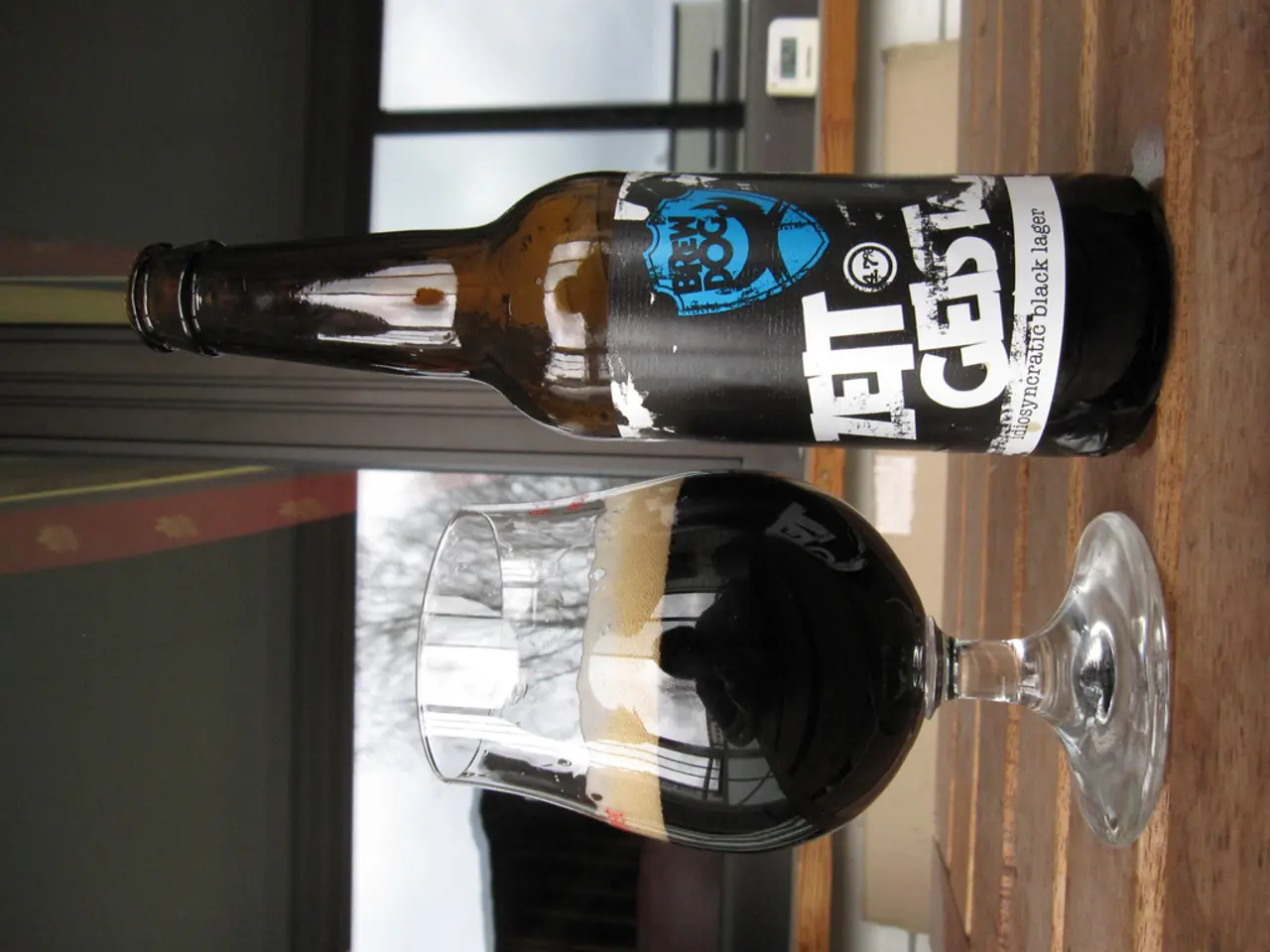'Bryan Johnson highlights the potential cancer-inducing effects of alcohol compared to Diet Coke'
Bryan Johnson, a prominent anti-ageing advocate, has highlighted distinct long-term health risks associated with regularly consuming wine and Diet Coke. While both beverages may have their own potential harms, they are of very different natures.
In the case of Diet Coke, the artificial sweeteners such as aspartame and sucralose could disrupt the gut microbiome and impair insulin sensitivity. This could potentially lead to negative impacts on metabolic health, suggesting a risk for issues related to blood sugar regulation and gut health over time.
On the other hand, wine, with its alcohol content averaging 12-14%, poses a more direct threat. Alcohol is classified as a Class 1 carcinogen, equivalent in risk to asbestos and tobacco. Even moderate consumption—one drink a day—raises the risk of cancers including breast, esophageal, and colorectal cancer. Furthermore, alcohol consumption contributes to brain volume shrinkage over time, implying long-term cognitive decline risks.
Johnson's stance is clear: neither option is harmless in the long term. Diet Coke threatens metabolic and microbiome health, while wine raises cancer and neurological risks. He advocates for minimizing or avoiding these substances to support longevity and optimal health.
This warning comes as Johnson, who has reversed his epigenetic age by 5.1 years through an anti-ageing regime, continues to make waves in the health and wellness industry. However, his stance on these beverages has not been without controversy. Some have questioned the relative risk levels, while others have expressed concern that his message may alienate people or even be disingenuous about the risks of alcohol consumption.
Despite these challenges, Johnson remains firm in his stance. For those seeking to maintain their health and longevity, the choice between wine and Diet Coke may indeed be a "pick your poison" question. It's a reminder that moderation and mindfulness are key when it comes to making choices about what we consume.
- Bryan Johnson, an advocate for anti-aging, suggests that both Diet Coke and wine could pose long-term health risks, with Diet Coke potentially impacting metabolic health due to artificial sweeteners and wine raising cancer and neurological risks due to alcohol content.
- In the finance sector, investments in health and wellness companies could prove wise, considering the growing awareness of long-term health risks associated with beverages like Diet Coke and wine.
- The decentralized finance (DeFi) industry, despite being largely focused on digital currencies, could explore opportunities in health and wellness, providing alternatives to potentially harmful beverages like Diet Coke and wine.
- While both Diet Coke and wine might have their own potentially harmful effects, the impacts on mental health and chronic diseases such as cancer, due to the long-term consumption of these beverages, should not be overlooked.
- As the medical-conditions industry continues to evolve, research on the long-term effects of artificial sweeteners, alcohol, and their impacts on metabolic health, gut health, brain volume, and cancer risk will be crucial for promoting health and wellness and managing chronic diseases like cancer.




